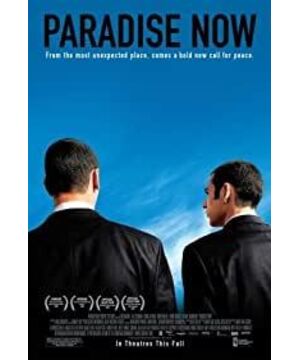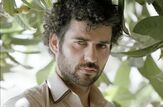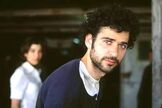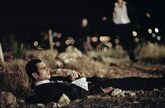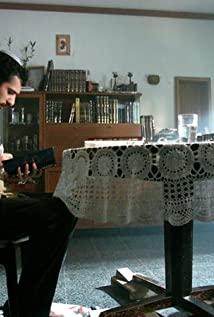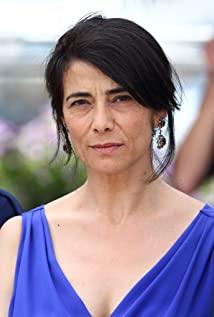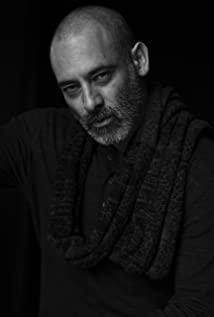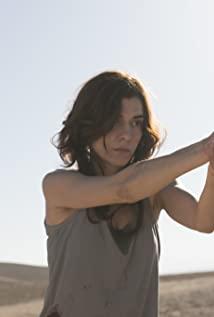The hidden historical roots behind the Israeli-Palestinian conflict are very complex, including religious and ethnic factors, as well as external factors such as the intervention of major powers. But in this film, I think for ordinary Palestinians, the most important thing is the disparity in the development of the two countries - their own land is occupied and their freedom is imprisoned. Palestine in the film is full of modern atmosphere compared to Israel: high-rise buildings, huge billboards, sunshine, beaches, bikini girls... There is a strong contrast. Looking back at the whole movie, I can't seem to recall that Said ever smiled. It should be like what he said. In this closed place, life is like a permanent prison. There is nothing to make him happy, even in the bud Nor can the love in his life make him forget the heaviness of living in a country imprisoned and free.
People who have lived in this kind of heaviness for a long time are hopeless in their hearts, and they can't seem to see an exit. Said said that moral opinion is biased towards Israel, which oppresses Palestine and is also playing a victim role in the international community. Therefore, Said believes that it is impossible to ease the relationship between Palestine and Israel through dialogue or non-violence. He repeatedly emphasized the efforts and sacrifices of the Palestinians for peace, and emphasized that the Palestinians have become so desperate that they can only use jihad to seek justice. It is only through the sacrifice of someone who uses this extreme violence to let Israel know that "if there is no security for the Palestinian people, then there is no security for the Israelis.
" , killing and harming innocent people, in order to threaten violence, hoping to attract public attention, is an extreme way of revenge.
In this film, I believe that the suicide attack in Palestine is a form of nationalist terrorism that takes advantage of the desperation of civilians and adds religious beliefs. Let the unarmed civilians believe that only by self-destruction can they cause large-scale panic in Israel to fear Palestine, spread the message, achieve their demands for freedom and fairness, and achieve their political goals. Therefore, in the eyes of Said, Khaled and many Palestinians, the "human bomb" is not a terrorist, but a freedom fighter of the country, a national hero, and death is only the price to pay for freedom and thus will not hesitate.
Suha represents idealism and anti-war voices in the film. Born in France and raised in Morocco, Suha is the daughter of a Palestinian national hero. But she believes that suicide attacks will only create more innocent victims and plunge the two countries into an endless cycle of violence and war. Through her dialogue with Khaled, we learned that Suha has a human rights group, through which she conducts public opinion and education on human rights concepts and condemns countries that violate human rights standards. This is consistent with the idealistic belief in the role of education and the importance of public opinion.
In the eyes of some countries and people, terrorism is an important tool for vulnerable groups to oppose strong groups, but since the rise of terrorism, it has only brought turmoil and disasters. I believe that under terrorism, the victims are not the oppressors, but innocent civilians, and there is only hatred between nations. Instead of bringing peace, terrorism has brought revenge and suffering on a larger scale, falling into a vicious circle of retribution.
In the film, Khaled was persuaded by Suha to give up the suicide attack, but the two of them ultimately failed to turn Said back. He stepped into the bus full of Israeli soldiers, his eyes indifferent. At the end of the film is a white, dazzling light, and after three or four seconds, it ends in darkness. I think this sends the message that death by terrorism, everything is meaningless, and no one will enter without heaven.
View more about Paradise Now reviews


